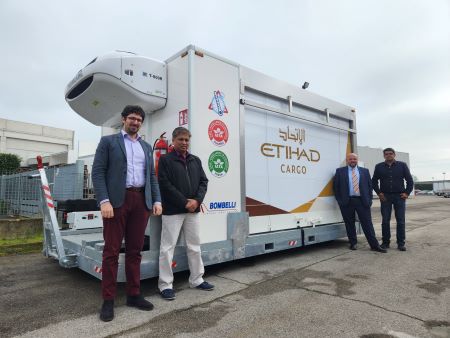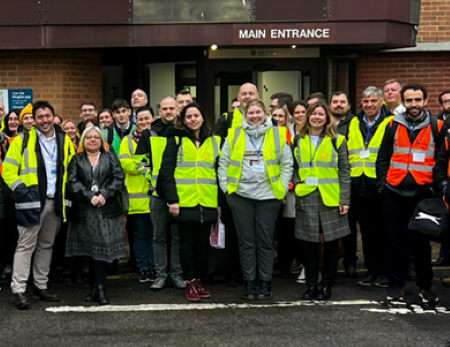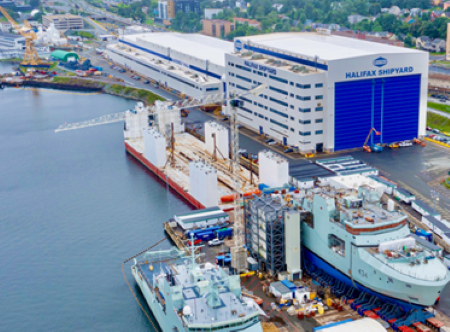Simon Clark, WiseTech Global’s VP of Business Development for Europe, the Middle East, & Africa explains how it’s possible to differentiate service without losing efficiency
Customers have high expectations of their forwarders, and often a forwarder’s day-to-day business can seem like nothing more than a struggle to satisfy those demands. But how can forwarders break free from being driven by what the customer wants and regain control? How do you make time to think about running and growing your own business?
Forwarding is a unique area of the logistics sector. The various types of businesses in the global supply chain market each have their own historic values and cultures. Express couriers, as an example, are very process-oriented, with their operations broken down into specific tasks which can be spread across the team.
Freight forwarders, on the other hand, have traditionally been less segmented and often follow a ‘cradle to grave’ philosophy in which they own all aspects of the job file, starting when the customer service team feeds them an initial booking.
The frustrations and the mindsets
Many freight forwarders I speak to are frustrated that, in working tirelessly to support their key accounts, they end up feeling like glorified ‘admin staff’ who aim to ‘just get the job done.’
In doing what they need to do – ensuring the freight gets to the right place, at the right time, for the right price – they don’t develop their forwarding skills or their forwarding business. Desk operators have no time to do what they’ve been trained to do: maximise yields for their company, deepen carrier relationships to benefit all clients, and find creative ways of balancing their loads using hubs and gateways (and more).
Another perceived danger within the forwarding world arises when the capacity to add value to customers relies heavily on the creativity of only a handful of key staff. If those staff leave, the expertise goes with them, and the customers soon follow. This is a massive risk almost every forwarder takes.
The mindset of some within the forwarding community is that they can’t utilise (or feel they don’t need) an automated transportation management system (TMS). Some of these forwarders use excuses like ‘automation won’t fit because we’re hands on; and ‘every transaction and every customer requirement is unique,’ and while those may seem like credible concerns, in reality they have little to do with how a TMS could change their business.
But let’s look at it from the other side: Are these staff really so different from other more process-driven areas of the logistics market? Imagine breaking it into the high-value, high-touch accounts versus the highly repetitive, low-touch activity of the normal, daily business. An obvious segmentation perhaps, but often a difficult one to manage without smart TMS systems.
By using the built-in, process-driven intelligence of an advanced TMS, combined with the expertise and personal connections of skilled staff, a forwarding business can be more productive, more profitable, and less subject to the risks of staff turnover.
The process of integrating processes
If you have ten agents working in isolation to cut down costs for customers, they’re not working to benefit or remove costs for your business. Few forwarders have the streamlined internal systems to have their staff collaborate effectively and maximise buying power.
The productive creativity comes when they all have a single, automated view of the business and their clients. Without it, we see staff who don’t communicate with one another running direct jobs to the same destination at the same time on the same day every week.
And that is just one example of where automation can help Freight Forwarders stop acting like ‘admin staff’ for their customers and start making money for themselves. There are many more.
Today’s TMS systems allow you to strike the right balance between creativity and productivity so that the ‘unique’ pressures your clients’ demands bring to your business will instead become the ‘unique’ high level of quality they come to expect.
Automating the unique customer experience
Every customer is special and should be made to feel that way, but in reality there is much commonality and replication in the underlying tasks you complete for each one of them. Identifying this in a strong business process management review is key to keeping the business sharp.
For a forwarder, the effort of being creative every time for every task is just not sustainable. If you need to do something the same way twice, then you should capture the procedure and automate it.
When implementing new IT solutions, it is common to look at re-engineering business processes to improve productivity over the whole business. I often see this done in ways that aren’t feasible for that forwarder when considering the types of clients that they have. It can all be ‘a bit too much.’ But that’s no reason to shy away from it completely.
Often, smaller, more feasible steps deliver quick wins to the business that make time to look for the next step in increased productivity. Today, the highly configurable nature of the latest cloud-based TMS suites allows you to simply and affordably bring in such change over time. To support this steady growth, switching on more functionality as you need it is exactly the kind of planned and progressive evolution the best TMS suites can offer.
Yes, forwarding is different, and yes, the processes are different. But with the right analysis of those processes to identify what tasks can be automated (or even given back to the customer), it’s clear that forwarders have more in common with highly process-driven logistics operations than we may first think.
Tell customers they’re special, but be efficient behind the scenes. Leave the ‘unique’ description in your customer service, not in the activity that drives your business.
About WiseTech Global
WiseTech Global is an innovative, multi-award winning global developer of cloud-based software solutions for the international and domestic logistics industries. Our leading product, CargoWise One, provides the most sophisticated and comprehensive end-to-end logistics solution in the world and forms an integral link in the global supply chain.
With clients holding more than 150,000 licenses across a customer community of 7,000 sites in 105 countries, our breakthrough software solutions are renowned for their powerful productivity, extensive functionality, comprehensive integration, deep compliance capabilities, and their truly global reach.
From single-office businesses to large multinational companies worldwide, our clients are able to improve their visibility, efficiency, quality of service, and profitability by adopting our next-generation technology.
As an innovator, we use software and hardware to solve problems and create new ways of working and living. We build products using the latest software tools and the best hardware platforms, and we take pride in delivering solutions that make a significant difference to our customers, partners, staff, shareholders, and the logistics industry at large.
Our people are the core of who we are. The accumulation of our collective experience, shared values, and individual skills has allowed our business to deliver industry leading solutions that exceed expectations. We are a mature, profitable, rapidly expanding business focused on great products, the intellectual property that drives them, the brands they create, and the markets and customers they serve.
WiseTech Global was founded in 1994 in Sydney, Australia, with a mission to lead the international logistics industry in technology innovation. The company now operates from offices worldwide with regional headquarters in the US, UK, China, and Australia.
www.wisetechglobal.com








